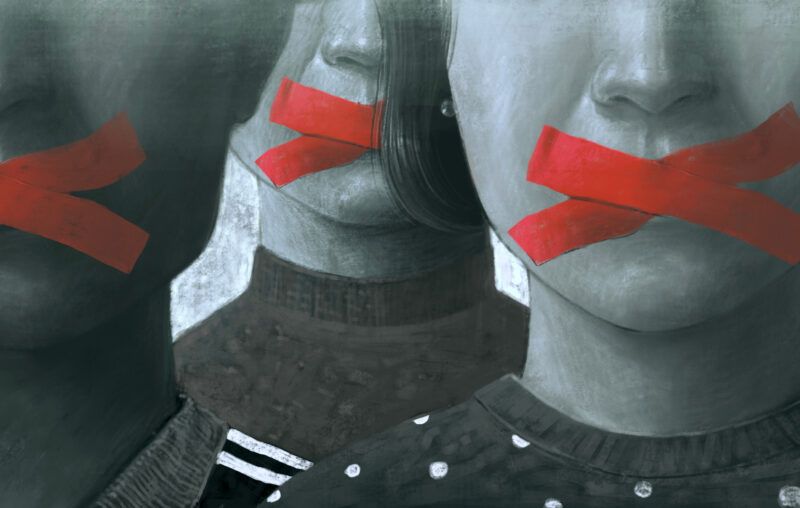Hollywood’s “Illiberal Left”

Public affection operates on a hair trigger. With cancel culture more popular than ever, many celebrities have fallen victim to the internet mob for crimes as simple as benign comments or right-of-center political views. Every week seems to bring a new A-lister under fire. But thankfully, there’s a mounting resistance in Hollywood to battle unwarranted suppression.
Matthew McConaughey appeared on Good Morning Britain to discuss his takes on the “illiberal left”:
You’ve got to have confrontation to have unity. That’s when a democracy works really well. I would argue we don’t have true confrontation right now, confrontation that gives some validation and legitimizes the opposing point of view. We don’t give legitimacy or validation to an opposing point of view, we make it persona non grata, and that’s unconstitutional.
The original comment came from McConaughey’s recent appearance on Russell Brand’s podcast, in which the two discussed liberal Hollywood’s “condemnation and criticism of ordinary working people.” McConaughey chided the extreme wings of both sides of the political spectrum for delegitimizing one another––rightfully so. No side is blameless when it comes to suppressing “undesirable” speech. But the left, with its history of support for free speech and tolerance, has taken a shameful turn in its embrace of cancel culture.
Ricky Gervais, one of Hollywood’s most outspoken and controversy-prone comedians, lampooned the movement in an interview with Metro magazine:
…You shouldn’t have to go to court for saying a joke that someone didn’t like. And that’s what we get dangerously close to. If you don’t agree to someone’s right to say something you don’t agree with, you don’t agree with freedom of speech.
He also said that “people…trying to get someone fired because they don’t like their opinion about something that’s nothing to do with their job…that’s not cool.” While it isn’t surprising that Gervais would be the celebrity to decry this trend, it’s reassuring that such a visible figure is raising the alarm.
As Gervais hints, the “right” opinion is valuable currency in Hollywood, regardless of its relevance to its holder’s career. Celebrities who find themselves outside of Hollywood’s ideological orthodoxy have to deal with attacks from the general public and from fellow A-listers.
Vince Vaughn came under fire earlier this year for shaking President Donald Trump’s hand at a football game. Vaughn explained that the cordial gesture was far from an endorsement––and that he’d shown similar respect to politicians on the left like Nancy Pelosi. But still the Twitter mob came. At the very same game, he spoke with Democratic strategist James Carville. That interaction didn’t make headlines.
Vaughn followed up the incident with a valuable lesson from his youth:
I was raised with the idea that you could have different likes and beliefs and you should respect and defend that in other people, not shout it down. The people you disagree with the most, you should stand up for their right to do that.
Chris Pratt faced similar attacks earlier this year for his religious and political affiliations. Though Pratt has never used his platform to voice hate, he was criticized for belonging to a supposedly anti-LGBT church (a point that fellow actor Elliot Page jumped on). Pratt’s defense of his church’s openness and his own personal values did little to assuage the angry masses. The fact that he follows conservative figures on Twitter and didn’t attend an Avengers cast-held fundraiser for President-elect Joe Biden added to the fury.
Those who are familiar with the history of suppression in Hollywood will rightly draw conclusions to the McCarthy era. Though it was the right lobbing attacks and launching probes during this period, it mirrors today’s cancel culture in more ways than one.
The Red Scare began after World War II but reached its peak in the mid-1950s. Public concern about communist influence had grown so great that government officials (most notably, Senator Joe McCarthy of Wisconsin) began to launch ideological probes. McCarthy took on the role of the anti-communist movement’s chief crusader, with government officials aligning themselves with his conservative views and dissenting leftists falling silent for fear of his wrath.
The House Un-American Activities Committee (HUAC) set its sights on Tinseltown as it launched investigations of potential communist sympathizers. The HUAC’s probes eventually resulted in arrests and blacklisting for the actors and directors who were convincingly tied to communist interests. People ratted out colleagues, doling out hundreds of names in the hopes of preserving their own livelihoods or contributing to the anti-communist cause. Careers were lost and relationships were ruined.
We look back on this era with disgust, with regret, with fear that something so dangerous and invasive could happen again. Yet, our contemporary culture mirrors the vindictiveness of this period.
Arguably, this is where the cancel culture that now plagues Hollywood––the culture that figures like McConaughey, Gervais, and Vaughn rally against––took root. Is it really so different from blacklisting? Hollywood’s new McCarthyism doesn’t flow from the highest government offices, but its end effect is all too familiar: ruined careers, ruined reputations, ruined lives.
There are, of course, celebrities who deserve to be canceled. Bill Cosby, Harvey Weinstein, and R. Kelly––people who have committed tangible, reprehensible abuses––have no place in polite society. But we’re far too quick to line people up on the chopping block for supposedly irredeemable ideologies. Celebrity or commoner, no one is spared.
The Red Scare may have been most publicly visible in government offices and Hollywood studios, but it bled down to the general public as well. Normal Americans accused of being communist sympathizers were ostracized, stalked, and fired. They fell victim to the rising tide of civil liberty suppression, all in the name of promoting the “correct” ideology.
Celebrities in no way determine the social course of the country, but they do reflect and shape it. When the most visible figures fail to stand up for our founding principles, we normalize intolerance. McConaughey, Gervais, and Vaughn may not be explicitly invoking their industry’s history, but their warnings are historically informed nonetheless.
Cancellation runs counter to its own goals. If we hope to live by the best ideals that we know of, cancellation prevents us from discovering the full suite of options, instead committing us to the way things already are. And if the aim is to shut down undesirable viewpoints and convert folks to more honorable causes, why pursue the most polarizing approach imaginable, rather than having an open and honest debate?
Our nation was built on surrendering undesirable norms in favor of a more free and equal union. There have been missteps, to be sure––but our commitment to being better has kept us marching forward. Where other societies have fallen for refusing to let go of the ideas that poisoned them from the inside, we’ve devoted ourselves to self-improvement.
As we sit here in our new moralism, with a lower tolerance for difference than ever before, that progress is in jeopardy. History speaks volumes, and the warnings are there. It’s up to us to heed them.










